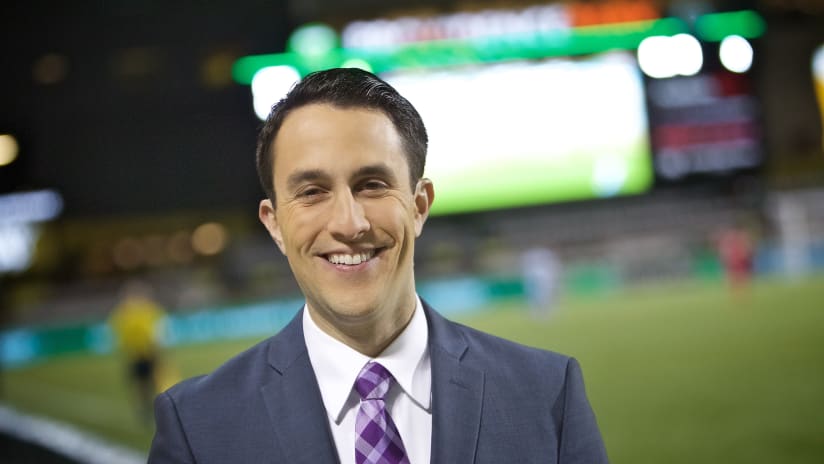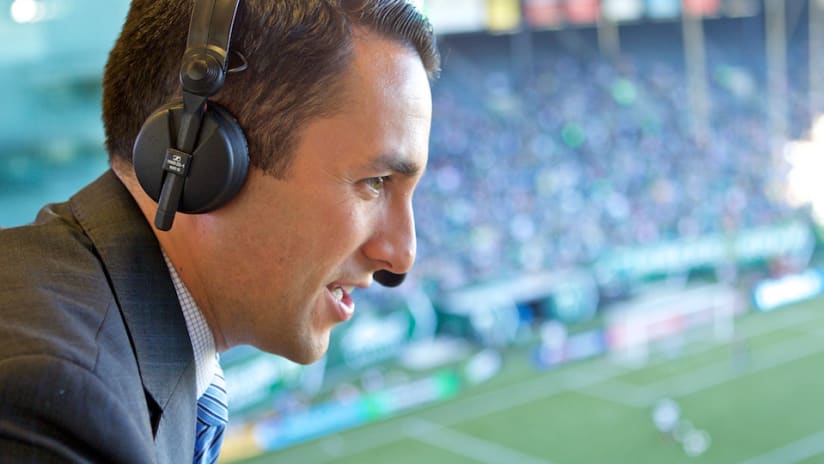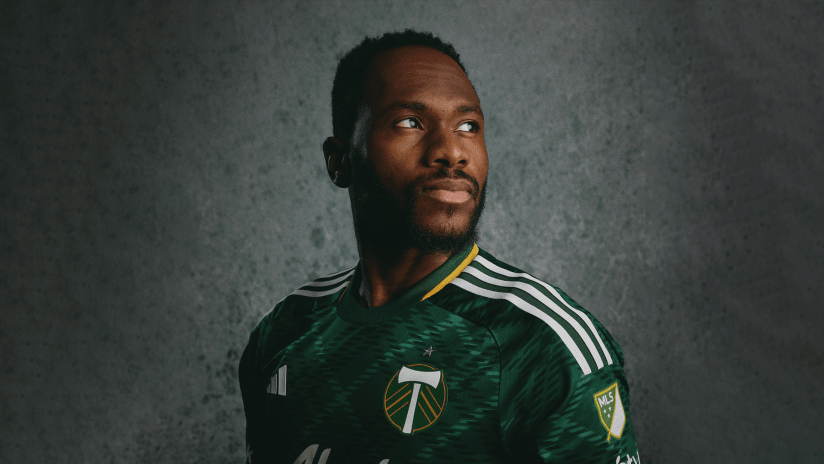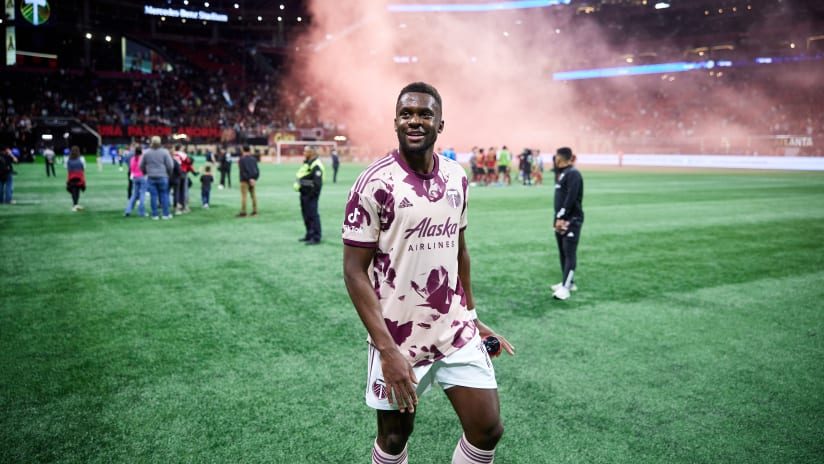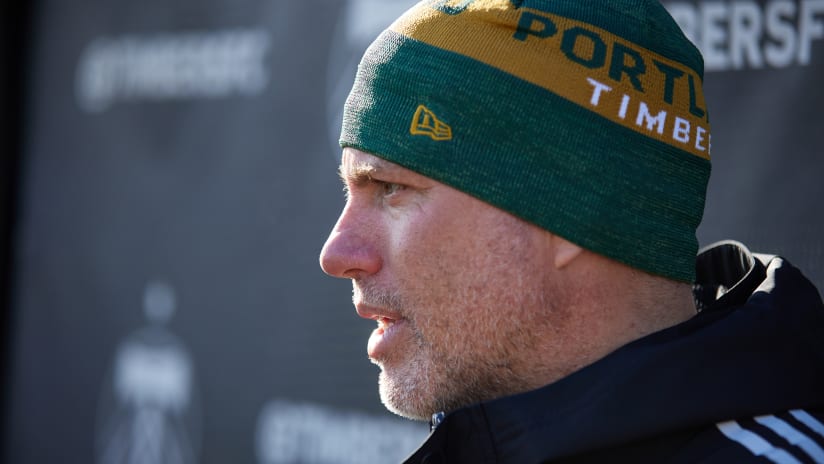For the past seven years, Jake Zivin has been the voice of the Portland Timbers, providing the play-by-play commentary for TV and radio. This week, Zivin officially joined the talented broadcast team of MLS Season Pass, launching on the Apple TV app on February 1.
As the next step in Zivin's career approaches, we chatted with Zivin about what the new streaming service means for him and for fans, his first Timbers broadcasting experience in 2011, and his favorite call he's ever made for PTFC.
How did you start out and what does this next step mean for your career?
I started in Butte, Montana actually, right out of college, getting paid $17,500 a year. I met my wife there, which is great. She was in the same boat but she was working for the rival station. That's 15 years ago—the time has flown by for me.
But I'll say this on a personal level, MLS has always been my thing. Growing up as a kid in Chicago, even before the Fire came into the league, I didn't understand that as an 11 year old, 10 year old. I was like, this is Chicago. You know, the city of the Bulls... why don't we have a team? Why does Tampa Bay have a team? But when the Fire came in, I was a diehard fan.
In college I interned at the broadcasting department for MLS—I worked in the production truck of the ESPN Game of the Week, operating the scoreboard—the score bug, as we call it—which basically goes to the most junior member of the crew. I was the youngest member of that crew, the youngest person in that production truck.
I loved the league of MLS—anybody that knows me knows that and kind of how deep that goes. So even when I started my professional broadcasting career, my goal and dream has always been to get back into soccer and, specifically, into MLS. But even being on TV in Butte, Montana, was something I would have never thought possible, right? It's like, the people who get to talk about sports on TV... it's like they want a lottery, you know? it seems like it's not attainable. But then, your career grows. Certain things come and then you say, no, maybe that is attainable.
What does this new step mean for you?
This has always been my dream job. It's what I've always wanted to do and so now to be able to do it the national level—week in and week out. I have obviously been fortunate to get some national opportunities over the past five years with FOX and ESPN. It is incredible. I'm thrilled. I'm so excited.
[MLS Season Pass] is something that's brand new and at the very beginning. It's beyond exciting to be able to do it in this new way. It's gonna be really groundbreaking, I think. Not even just in for MLS, maybe not just even for soccer, but for sports online: one place for fans of the league, anywhere in the world, to watch every game.
On the production side, how different is the streaming world from what you're used to?
I mean, in the end, we're broadcasting a soccer game. Visually, whether you're using a pair of antennas hooked up to an old CRT television, or whether you're using a cable box or a satellite dish, or whether you're on phone, the basics of broadcasting a soccer match are going to be the same. And they're going to feel the same. But I think what's different is... it's Apple, right? I think the production quality is going to be incredible.
If anybody watched the MLB baseball Apple package last year, you were immediately—I thought at least—blown away by the quality and the production innovation that was there. They're not showing [the games] from a different angle or anything like that. It's not a hologram. But they used different cameras, and photographically I thought the look was great. It was very Apple. It was very streamlined and very slick, with integrated stats and advanced stats into those graphics constantly on the screen. Baseball is a sport for that.
So I think that you're going to see a product that has amazing quality, more than what people have been used to in the past.
Do you remember your first coverage of the Timbers?
Yeah—it was the first home game in MLS. April 2011. I was a relatively new sports reporter at KEZI in Eugene, the ABC station there. It was Eugene, so obviously we were covering the Beavers and the Ducks, first and foremost. The Ducks and the Beavers, as I should put it. There are a lot of Blazer fans in Eugene, too. We covered the Blazers, we showed highlights every night, but we wouldn't necessarily come up for games except in the playoffs.
When the Timbers joined MLS in 2011, they were getting ready for their first ever home game against, ironically, the Chicago Fire. My childhood team. I went to my producer and I was like, "Hey, like you know how we go up to Blazer playoff games and really big games? [The Timbers are] the second professional team in the state. I think it's a big deal. I think we should go cover it." I told them I'd drive up and drive back. And they're like, "Yeah, go do it." I think it was a Thursday night—It wasn't a Saturday night so it wasn't as busy. And also April's a slower months: the college football and college basketball seasons are over.
I was young, still early in my career. I was just so excited to go.
At that time, we were one-man-bands. Now people are one-man-bands even even in bigger markets now. That means you should shoot your own stuff and edit through everything.
So I went out there by myself on camera... and I didn't bring a rain cover. And it's dumping rain. As everybody knows very well. It poured during that game. Maybe as hard as any game in Timbers history. And generally when you're a news reporter or sports reporter in Oregon, you should just have a rain cover in your car at all times. I'm freaking out. But there were these industrial sized garbage cans, like most like arenas. And there was a bag right there. So I grabbed it and I start bashing the hole in it, so that it could go around the camera but the left could stick out. And I shot the game with my camera in a trash bag.
If you go back and watch the game, you'll see me behind the goals. Not in every shot. But you can see me shooting game though all 90 minutes, with the biggest smile on my face and biggest goosebumps on my arms. And not because of the rain and the cold. I had never seen anything like Providence Park—I didn't think that something like that could happen in this country, in this league, as quickly as it did.
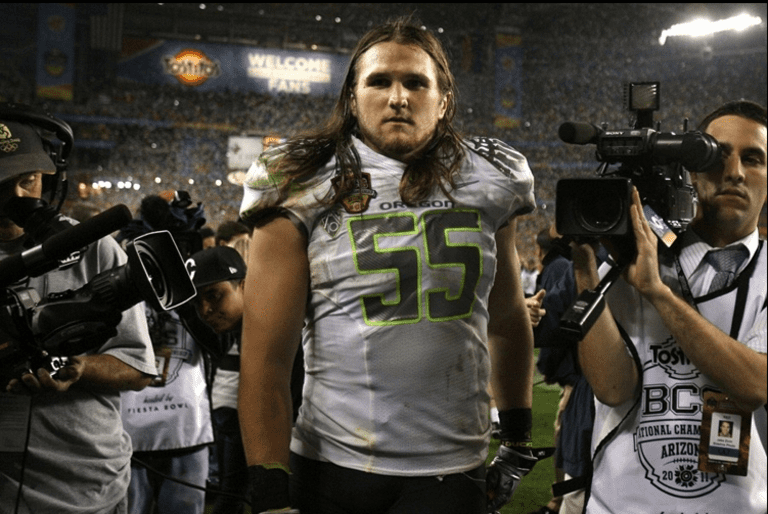
What was your favorite call you made for the Timbers?
I'm pretty self critical. A lot of times I go back and listen to calls [I made] and I'm like, "I'm way out of my vocal range" or "I said this, I should have said that." But my favorite call was Darlington Nagbe's goal against Vancouver in 2017—he goes around a couple players and he just scores an incredible goal from probably 22 yards out. David Ousted has no chance. It's just a wonderful goal from a wonderful player.
For me I just think I hit the pacing right. I didn't say too much throughout the build-up, but I hit the build-up, and also built up it up as it was happening. And then in the call of the goal itself I didn't go too far out of my vocal range, which is the biggest thing that I work on and have to work on still. You know, a lot of the calls from the booths... like the bicycle kicks [last year]—I'm like, "Oh Jake, your voice. Keep it in." But that would be my favorite call.

